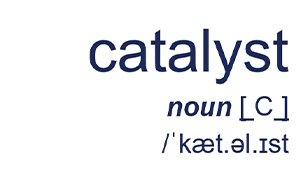
Morning (Mourning) Prayer
Robert Whalley
Writeability met up with Robert Whalley thanks to the Ovens Murray (Wodonga) WGRO program. His deeply spiritual reflections on his life, part of his work-in-progress ‘Lost Together with the Others’, recall the memoir writing of Raimond Gaita, another migrant writer who found a home in North East Victoria.
1
17 January 2021, 5:34am AEST
I write this on a Sunday. In three months’ time I will celebrate seventy-five years of life. Celebrate is the verb in question. Although the addition is clear, it seems to me to be a mystery. I have never expected to be an old man. One of my final tasks as a working Anglican priest was serving as a part-time chaplain in an aged care facility where I learned about what may lie ahead for all of us should we live that long: I saw some people who had lost strength, acuity, abilities, dexterity, depth, doing well with style, mindfulness, humour, kindness remaining. It remains a salutary lesson.
But I am not quite there this summer morning. Today I’m waking in the dark, not waiting for the light to walk down the hall after using the toilet, feeding cats, making coffee, returning to bed with hot plunger and mug, opening the laptop and writing this. And in spite of these definite actions, my mood is, I have to say, a bit shaky.
I was diagnosed with Parkinson’s Disease a bit over a year ago and that still, shall I say, reverberates. For the background soundtrack please cue a 78rpm version of Judy Garland’s ‘Have Yourself a Merry Little Christmas’ fading in and out alongside the Beachboys’ ‘Good Vibrations’ as a backup track: the music may be maudlin, caustic and shallow but, surprisingly, I can almost dance to it, at least some days, sometimes.
The tremor started with my left hand, the left foot soon picking up the beat. My handwriting, never good, degenerated to a diminutive almost illegible scrawl, fatigue became an ever-present companion. I’ve taken more naps, read less and written little for most of the year following.
But how do you dance with dying slowly? How do you die from the brains down? How do you keep up hope when it’s tough to – putting it bluntly – get it up for much of anything? Cue Judy Garland: ‘The road gets rougher, it’s lonelier and tougher / the wind grows colder, and suddenly you’re older’, alongside Angela Lansbury singing ‘It’s Today’, from the original cast recording of Mame. Did I mention I’m an old gay man? These things are important.
2
18 January, 6:45am AEST
Another first cup, let it pass.
Dealing with dying.
Question: as the actress said to the bishop, ‘How long?’
Answer: ‘Almost seventy-five years, until it’s over, maybe always, maybe never, still and still moving, more life: who knows? End of life, goal of life, who knows?’
If this is (as some say) a slow dance, and if I see this year out, maybe my chronically optimistic husband is right and we will fly to Germany next May. Maybe, maybe not. Could we finish the overseas trip in Switzerland at some mountain sanatorium with a final injection, bitter but in good taste, that leaves me with an illusion of control, of (at last) will? My will and testament, to what? To what end?
And what if I were to be an optimist? Exercise daily, give thanks hourly, divide the day up into ten-minute intervals with frequent rest stops: passion, prayer, patience, peace. Cue T. S. Eliot: ‘A lifetime burning in every moment… and not one man only…’
Let it begin again.
3
10 February 6:17am, AEST
The results from the MRI show a 7 x 12 mm growth on my prostate. My GP returned my call last night, I still haven’t heard from the urologist. Sigh. Evidently the next step is a biopsy. I downloaded several brochures from a cancer site and all say that usually prostate cancer is slow growing, generally not a killer of old men. Instead, ‘something else will take you out’. But since I’m dealing with Parkinson’s and COPD already it does feel like enemy troops are gathering in nearby fields.
It’s prayer time at the home. I pause. And if I listen deeper is there more? And what’s the soundtrack anyway?
I don’t think there are harps in heaven, and if, after death, I heard a folk choir singing ‘Kumbaya’ or, even worse, ‘Amazing Grace’, by God I’d turn and run. But at this moment I’m surprised to know that I would quickly bless Love for some newly eternal epoch that began with a trim, elegantly attired, nicely androgynous guitarist playing a tango. A slow tango: simple, strong, sexy and sad music to break your heart and make you thrill to still be alive and want to start the whole rigmarole again. That’s an afterlife worth dying for, living for too, with a background song something like a tango.
But what is the background music here and now? Here, in the devolving mini-drama of an elderly man dying and living daily, even minutely, in this North East Victorian Australian bush town in this particular late summer morning, abed with his iPad and first cup of coffee delivered by loving partner and the significant weight of an old cat leaning against the bedsheet on the outside edge of his left foot?
With all this I attempt to simply query this (and every) moment, listening and asking if, in the end, is there really and finally anything else but the tango? And could that be enough for now?
<-- Catalyst Anthology: Artemis Munoz Catalyst Anthology: Nini Priestley –>
